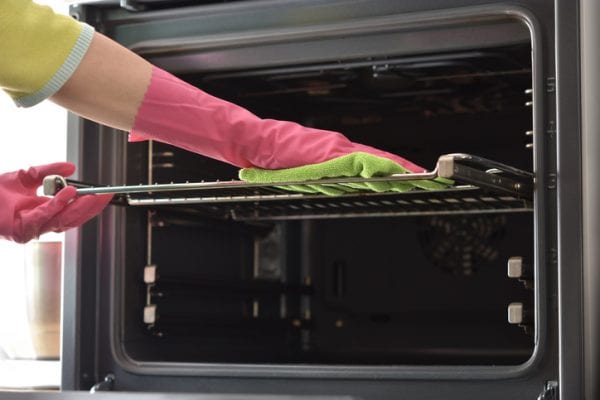
Whenever we see a news story about the horrors in America's nursing homes, the focal point is often physical abuse, falls, medication errors, bedsores, and sexual assault. Not as much attention seems to be paid to the cleanliness and safety of nursing home kitchens. Not nearly as much as should be, anyway, according to NBC News.
While America's aging population continues to grow, many nursing homes are experiencing an increased demand for food, even gourmet chefs. The conditions, however, are rather unsanitary.
According to Charlene Harrington, a University of California, San Francisco nurse and professor, the problem is underreported.
“It’s an accepted practice to have crappy conditions in the kitchen,” she said. “And people are just totally unaware of it.”
An investigation reveals alarming kitchen conditions
FairWarning, a nonprofit news organization based in Southern California, launched an investigation into nursing home kitchens. The organization — which focuses on public health, consumer, and environmental issues — found that nursing home residents across the U.S. are at risk of suffering foodborne illnesses due to unsanitary kitchens. The results of the investigation were based on inspection reports, federal data, and interviews with residents and long-term care experts.
According to the Centers for Disease Control and Prevention (CDC), roughly 230 foodborne illness outbreaks occurred in long-term care settings from 1998-2017. Approximately 54 residents died in the outbreaks. Another 532 were hospitalized and 7,648 become ill.
In one incident, a norovirus outbreak sickened 29 residents and 32 staff members at a Wisconsin nursing home. The outbreak was reportedly caused by failure to check the sanitizer levels in the dishwasher, as well as a clogged injector.
Any age group can be affected by norovirus or other less severe foodborne illnesses. Most people are able to recover within a few days. People over age 65 may sustain serious or life-threatening illnesses due to weakened immune systems, immobility, digestive system changes, and other age-related health conditions, however.
Third most-cited violation, behind infections and accidents
In a 2018 Centers for Medicare & Medicaid Services report, FairWarning found that unsanitary food handling was the third most-cited violation across an estimated 15,700 nursing homes (not including assisted living facilities). Approximately 5,621 citations were issued to 33 percent of nursing homes during that year.
Among those was Genesis HealthCare, the largest for-profit nursing home chain in the U.S., with roughly 400 facilities located in 27 states. More than 43 percent of the chain's facilities were cited for food safety violations.
In addition, about a third of nursing homes that were previously cited received two or more citations for the same violations since 2016. One facility in Arkansas was cited seven times within the last three years, receiving a fine of less than $8,000.
Dr. David Gifford, a senior vice president and chief medical officer for the American Health Care Association, contested FairWarning's investigation. He said that foodborne illness outbreaks in nursing homes are typically rare. The American Health Care Association is a trade group for long-term care providers and represents more than 13,500 nonprofit and for-profit elder care facilities.
“The vast majority of issues identified during inspections are important to correct but are rated by the state and federal officials as unlikely to put anyone’s health at significant risk,” Gifford said.
According to the CDC, however, the true number of outbreaks is currently unknown since reporting of incidents is often voluntary. In addition, many incidents go unreported when residents who become ill are never medically treated or diagnosed.
Protecting elders in light of these unreported safety hazards
Despite FairWarning shedding light on the issue, the problem could persist. In July of this year, the Trump administration dismantled some regulations that could protect nursing home residents from foodborne illnesses. Requirements were deemed "unnecessary" by the Trump administration. They would have prevented nursing homes from hiring unqualified directors of food and nutrition.
Many states, however, are beginning to make food safety a priority. Some states are consulting food safety experts and inspectors to zero in on potential violations that are often overlooked.
Unlike restaurant patrons, nursing home residents don't have the luxury of picking and choosing where they can eat. Yet when a foodborne illness outbreak happens in a restaurant, the news spreads fast. Officials are quick to act and patrons can choose to never eat there again.
More should be done to protect our seniors. We rely on nursing home facilities and staff to provide the best possible care to our loved ones, especially when it comes to nutrition and food safety. If your loved one suffered an illness due to unsanitary conditions in the facility he or she lived in, it's important that you take action immediately.
Atlanta attorney George S. Johnson has seen how seriously nursing home conditions can impact residents and their families. His experienced and compassionate legal team would like to sit down with you and explore your legal options.
To find out how we can help you, contact the Law Office of George S. Johnson, LLC and schedule your free case evaluation today.
